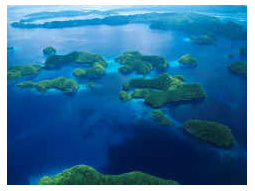
The development of British Columbia's off-shore oil and gas reserves is sure to be an important issue in the coming provincial election. Brace yourself for another round of screaming headlines and wild claims and counter-claims.
At one extreme will be those environmentalists who oppose the development of any oil and gas extraction, anywhere. Their view is a simple one: fossil fuels are bad things, they're principal contributors to greenhouse gases and global warming. As global reserves of oil and gas peak and then decline, humanity will have to develop renewable, clean sources of energy eventually.
Environmentalists' assertion about the ultimate future of fossil fuels is, of course, accurate. And it is inspiring to believe that B.C. could be the turning point, a place where untapped resources of oil and gas are simply left in the ground.
Utopian dream?
But that utopian vision runs into some hard realities. We may be intellectually ready to acknowledge that our addiction to fossil fuels is destroying us. However, we're not prepared to go cold turkey ourselves, so how can we deny a "fix" to others?
As the price of oil and gas soars--and the current spike above $40 a barrel for oil is just a portent of things to come--B.C.'s offshore oil and gas reserves will become more, not less, valuable. And since those reserves are fairly accessible, pressure will mount for their use.
Another overstated claim will be the risk of massive damage to the environment off British Columbia's West Coast. In the recent federal election, former Environment Minister David Anderson asserted that the moratorium on off-shore drilling would stay in place until "the knowledge gaps on the risks involved, the resources at stake, and the economic and social factors . . . are filled."
Just what "knowledge gaps" he was talking about was hard to pin down. The conclusion of the study by the Royal Society of Canada was that, given a strong regulatory regime, "there are no science gaps that need to be filled before lifting the moratorium on oil and gas development." And as for the "resources at stake," how can they be assessed fully until some one actually goes out and starts exploring?
Moratorium all but over
The exploration debate is about to shift from whether the ban should continue to what the conditions for exploration will be. Prime Minister Martin's decision to turf Mr. Anderson from cabinet is a sign that the moratorium on off shore drilling is soon to become a relic of another era.
Proponents of off-shore oil and gas will leap from that incremental step to wild assertions about the coming economic benefits: Employment will soar. Prosperity will return not only to the hard-hit North Coast but also to the entire province--and will do so by 2010. Government coffers will overflow with oil and gas revenues.
Meanwhile oil companies have been watching with interest as the federal and provincial governments inch away from the outright ban on off-shore drilling. But the companies have far more accessible--and far cheaper--resources to explore and develop on dry land before they head to sea.
Decade away at least
When they do get interested in B.C.'s off-shore resources--a decade or more from now--they'll want to know who owns them. The federal and provincial governments have barely begun to sort out that issue between themselves. And the first nations in the region have, of course, asserted their prior claim to all natural resources on the coast.
None of these considerations will slow down the claims by hucksters that off-shore oil and gas development will have huge economic benefit. Those benefits are apt, however, to be smaller and slower in coming than asserted.
In the provincial election of 2005, off-shore oil and gas development will be a potent symbol. For some, a symbol of potential prosperity to be sought. For others, a symbol of environmental ruin to be avoided. As is often the case in B.C. politics, both the benefits and the risks are likely to be wildly over-stated.
Paul Ramsey is a former NDP MLA and Cabinet Minister. He now teaches at CNC and is a Visiting Professor in the Political Science Program at UNBC.
![]()















Tyee Commenting Guidelines
Comments that violate guidelines risk being deleted, and violations may result in a temporary or permanent user ban. Maintain the spirit of good conversation to stay in the discussion.
*Please note The Tyee is not a forum for spreading misinformation about COVID-19, denying its existence or minimizing its risk to public health.
Do:
Do not: